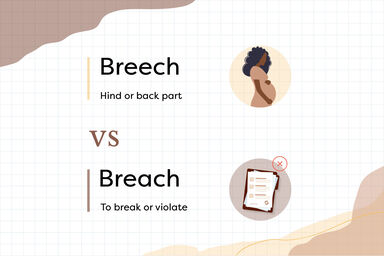Lease Definition
- term of a contract
- letting
- rental
- opportunity
- new outlook
- new perspective
- another chance
- rental agreement
- charter
- permission to rent
(chiefly dialectal) To gather.
- An opportunity to improve one's circumstances or outlook.
- another chance to lead a happy life, be successful, etc. because of a new turn of events
Idioms, Phrasal Verbs Related to Lease
- a new lease on life
- new lease on life
Origin of Lease
-
From Middle English lesen, from Old English lesan (“to collect, pick, select, gather"), from Proto-Germanic *lesanÄ… (“to gather"), from Proto-Indo-European *les- (“to gather"). Cognate with Scots lease (“to arrange, gather"), West Frisian lêze (“to read"), Eastern Frisian lesen (“to gather, read"), Dutch lezen (“to gather, read"), German lesen (“to gather, read"), Danish læse (“to collect, read").
From Wiktionary
-
From Middle English lesen, from Old English lÄ«esan (“to loosen, release, redeem, deliver, liberate"), from Proto-Germanic *lausijanÄ… (“to release, loosen"), from Proto-Indo-European *leu- (“to cut, solve, separate"). Cognate with Dutch lozen (“to drain, discharge"), German lösen (“to release"), Swedish lösa (“to solve"), Icelandic leysa (“to solve").
From Wiktionary
-
From Middle English *lesen, from Anglo-Norman *leser, Old French lesser, laisier (“to let, let go"), from Medieval Latin lassō (“to let, let go"), partly from Latin laxō (“to loose"); partly from Old High German lāzzan, lāzan (German lassen, “to let, let go, release"). Cognate with Old English lÇ£tan (“to allow, let go, leave, rent"). More at let.
From Wiktionary
-
From Middle English leas, lees, les, from Old English lÄ“as (“false, void, loose"), from Proto-Germanic *lausaz (“loose, free"), from Proto-Indo-European *lÅ«- (“to untie, set free, sever"). Cognate with German los (“loose"), Swedish lös (“loose"). More at loose.
From Wiktionary
-
From Middle English lese, from Old English lÇ£s (“meadow"), from Proto-Germanic *lÄ“swō (“meadow"), from Proto-Indo-European *lÄ“y-, *lÄ“id- (“to leave, let"). Cognate with Old Saxon lÄ“sa (“meadow"). See also leasow.
From Wiktionary
-
Middle English les from Anglo-Norman from lesser to lease variant of Old French laissier to let go from Latin laxāre to loosen from laxus loose slēg- in Indo-European roots
From American Heritage Dictionary of the English Language, 5th Edition
From Middle English *leasien, from Old English lÄ“asian (“to lie, tell lies"), from lÄ“as (“falsehood, lying, untruth, mistake").
From Wiktionary
-
From leash
From Wiktionary
Find Similar Words
Find similar words to lease using the buttons below.





